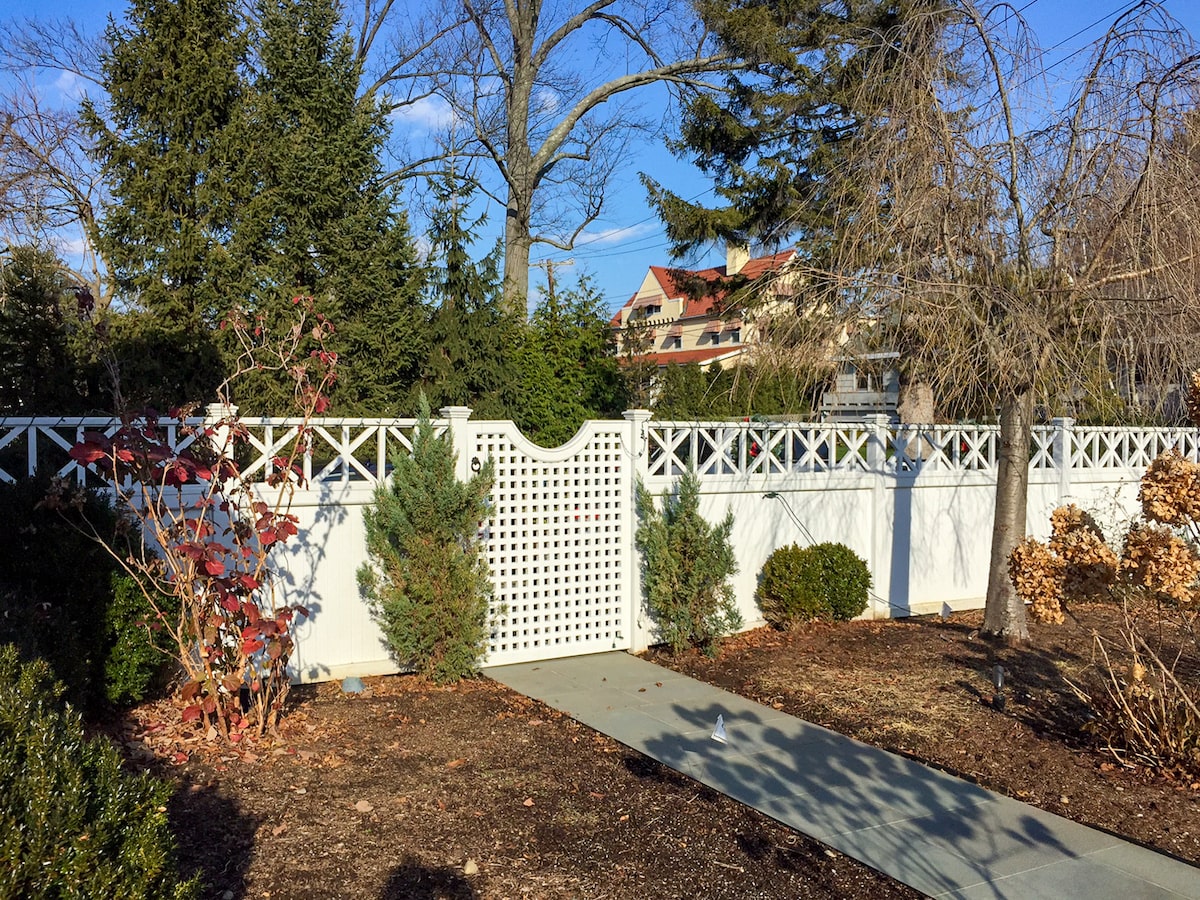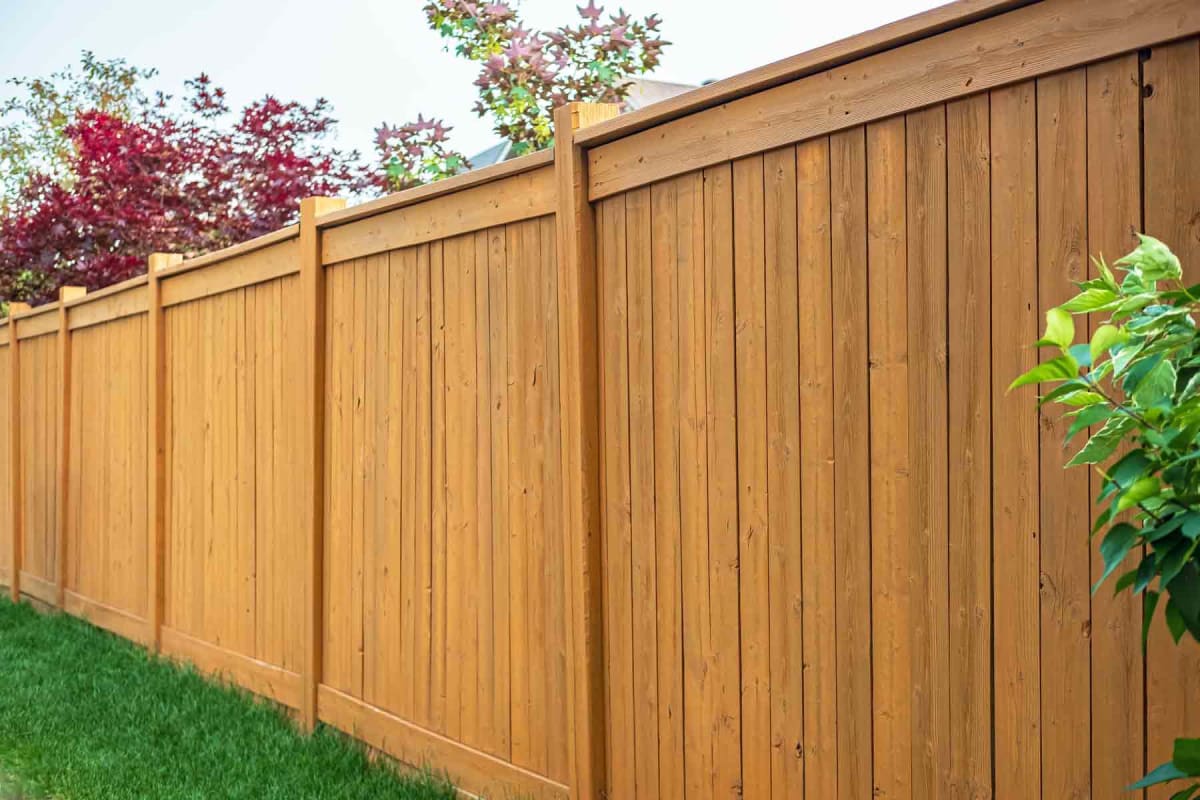All Categories
Featured
Comprehending the permit needs in your location is crucial if you're taking into consideration installing a fence around your building. While developing a fence might appear like a basic do it yourself job, numerous policies might regulate its building and construction depending on where you live. Falling short to acquire the appropriate authorizations can cause fines, penalties, and even needing to eliminate the fencing completely. In this overview, we'll break down the different authorizations you might need to set up a fence and just how to guarantee your job stays certified with neighborhood regulations.
Why Are Allows Essential for Fence Installment? Permits are called for to make certain that the fence you build adheres to regional structure codes, zoning regulations, and safety requirements. They ensure that the fence will not block energies, website traffic circulation, or develop dangers for pedestrians.
![]()
Kinds Of Permits You May Requirement. Building Permit. A building authorization is the most common requirement for mounting a fencing. If your fence surpasses a particular elevation (typically around 6 feet), you might require to acquire a structure authorization.
Zoning Permit. A zoning permit makes sure that your fence complies with these regulations. Your fence may need to be established back a certain distance from pathways or home lines.
Homeowners Association (HOA) Approval. You might need approval prior to mounting a fencing if your home is part of a homeowners association. HOAs frequently have strict policies concerning the kind, design, and materials made use of for fences to keep an uniform appearance throughout the neighborhood. The HOA may require you to submit detailed plans or request authorization prior to installation. See to it you comply with these guidelines to avoid potential fines or penalties.
Specialty Permits. In some cases, you might need specialty permits based on the place of your home or the nature of your fence. For instance, if your home remains in a disaster area, you might require extra licenses to ensure that your fencing does not block drain or water flow. Similarly, if you intend to build a fencing near an ecologically secured area, you might need an unique permit to comply with ecological guidelines.
![]()
Energy Easements and Energy Firm Approvals. Prior to installing a fencing, you have to examine if your residential property has an easement. Developing a fencing within an easement might interfere with energy maintenance or damage underground lines.
How to Establish Which Allows You Need. Consult Neighborhood Authorities. The primary step in figuring out the permits required is to call your neighborhood structure department or zoning workplace. They can supply particular details concerning what authorizations are required for your location. Many cities have on-line resources or portals where you can inspect the requirements or perhaps apply for a permit online.
Consult a Professional Fence Contractor. A neighborhood fencing contractor is typically aware of the license procedure and regional guidelines. They can help you browse the requirements and guarantee that your job is compliant. Lots of specialists also handle the license application process on your part, conserving you time and initiative.
Review Your Neighborhood's HOA Standards. If you live in an area regulated by an HOA, make certain to evaluate their guidelines prior to requesting any licenses. The HOA may need specific designs, products, or elevation limitations for fences within the neighborhood. Send your strategies to them for authorization before continuing.
![]()
Consequences of Not Getting a License. Setting up a fence without the called for licenses can lead to major effects. You may encounter penalties, be gotten to eliminate the fencing, or be needed to redo the setup to meet code demands. Furthermore, offering your home might be complicated if the fence does not meet neighborhood guidelines. Prospective buyers might be reluctant to buy a residential property with an unpermitted fencing, especially if it's in offense of zoning regulations.
Conclusion. Before installing a fence on your building, make sure you recognize the neighborhood laws and get any kind of required permits. Building licenses, zoning licenses, HOA authorizations, and specialty permits all play a vital role in making sure that your fencing is risk-free, lawful, and compliant.
Why Are Allows Essential for Fence Installment? Permits are called for to make certain that the fence you build adheres to regional structure codes, zoning regulations, and safety requirements. They ensure that the fence will not block energies, website traffic circulation, or develop dangers for pedestrians.

Kinds Of Permits You May Requirement. Building Permit. A building authorization is the most common requirement for mounting a fencing. If your fence surpasses a particular elevation (typically around 6 feet), you might require to acquire a structure authorization.
Zoning Permit. A zoning permit makes sure that your fence complies with these regulations. Your fence may need to be established back a certain distance from pathways or home lines.
Homeowners Association (HOA) Approval. You might need approval prior to mounting a fencing if your home is part of a homeowners association. HOAs frequently have strict policies concerning the kind, design, and materials made use of for fences to keep an uniform appearance throughout the neighborhood. The HOA may require you to submit detailed plans or request authorization prior to installation. See to it you comply with these guidelines to avoid potential fines or penalties.
Specialty Permits. In some cases, you might need specialty permits based on the place of your home or the nature of your fence. For instance, if your home remains in a disaster area, you might require extra licenses to ensure that your fencing does not block drain or water flow. Similarly, if you intend to build a fencing near an ecologically secured area, you might need an unique permit to comply with ecological guidelines.

Energy Easements and Energy Firm Approvals. Prior to installing a fencing, you have to examine if your residential property has an easement. Developing a fencing within an easement might interfere with energy maintenance or damage underground lines.
How to Establish Which Allows You Need. Consult Neighborhood Authorities. The primary step in figuring out the permits required is to call your neighborhood structure department or zoning workplace. They can supply particular details concerning what authorizations are required for your location. Many cities have on-line resources or portals where you can inspect the requirements or perhaps apply for a permit online.
Consult a Professional Fence Contractor. A neighborhood fencing contractor is typically aware of the license procedure and regional guidelines. They can help you browse the requirements and guarantee that your job is compliant. Lots of specialists also handle the license application process on your part, conserving you time and initiative.
Review Your Neighborhood's HOA Standards. If you live in an area regulated by an HOA, make certain to evaluate their guidelines prior to requesting any licenses. The HOA may need specific designs, products, or elevation limitations for fences within the neighborhood. Send your strategies to them for authorization before continuing.

Consequences of Not Getting a License. Setting up a fence without the called for licenses can lead to major effects. You may encounter penalties, be gotten to eliminate the fencing, or be needed to redo the setup to meet code demands. Furthermore, offering your home might be complicated if the fence does not meet neighborhood guidelines. Prospective buyers might be reluctant to buy a residential property with an unpermitted fencing, especially if it's in offense of zoning regulations.
Conclusion. Before installing a fence on your building, make sure you recognize the neighborhood laws and get any kind of required permits. Building licenses, zoning licenses, HOA authorizations, and specialty permits all play a vital role in making sure that your fencing is risk-free, lawful, and compliant.
Latest Posts
Change Your Home with Durable Hardwood Flooring from Carpet Interiors Floor & Home
Published Apr 19, 25
1 min read
Montclare Auto Repair: Your Reliable Expert for Expert Brake & Engine Fixes
Published Apr 19, 25
2 min read
Secure Your Future with WyHy's Special Certificate Options
Published Apr 18, 25
1 min read
More
Latest Posts
Change Your Home with Durable Hardwood Flooring from Carpet Interiors Floor & Home
Published Apr 19, 25
1 min read
Montclare Auto Repair: Your Reliable Expert for Expert Brake & Engine Fixes
Published Apr 19, 25
2 min read
Secure Your Future with WyHy's Special Certificate Options
Published Apr 18, 25
1 min read